Menopause: Woman disciplined for taking time off work
- Published
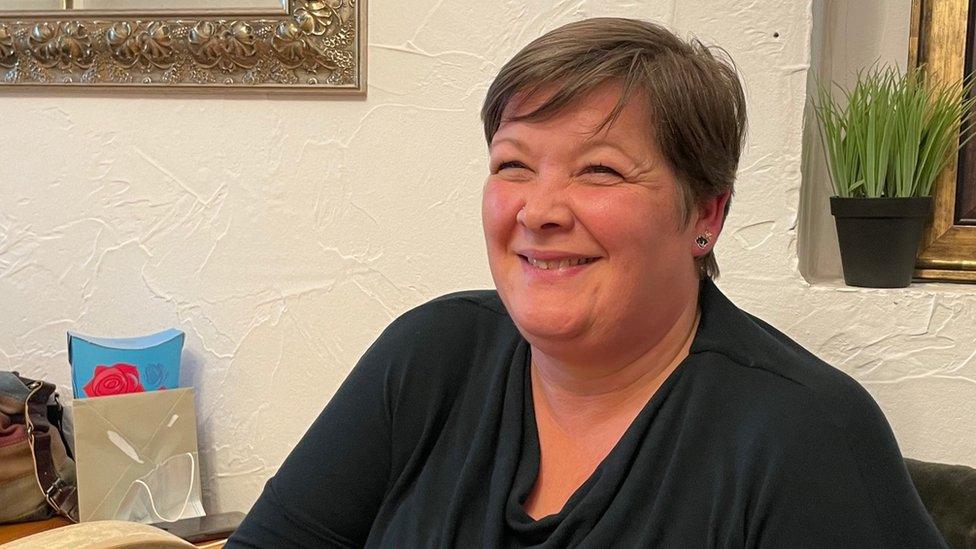
"I was hauled into the office several times about taking too much time off for sickness," says Mo Wildridge
A woman who was disciplined for taking too much time off work due to menopause sickness is calling for better services.
Mo Wildridge, 51, said although her boss was "understanding" of what she was going through, her employer told her they were "following guidelines".
A new law, which was debated in Parliament on Friday, looked to change that.
The Welsh government said menstrual wellbeing would be taught in schools.
Swansea East MP Carolyn Harris asked the House of Commons for a UK-wide strategy on menopause support, a way to share best menopause practice in the workplace, for menopause to be taught in schools in England and compulsory training on menopause in medical schools.
This would have a knock-effect for patients in Wales treated by doctors trained in England-trained doctors.
The new bill also asked England to follow Wales in making menopause treatment - Hormone Replacement Therapy (HRT), external - free on prescription.
The government did not agree to the move fully, but committed to rolling the two treatments into one - saving women about £200 annually.
Health Minister Maria Caulfield also announced the creation of a menopause task force, which she asked Ms Harris to co-chair, to "encourage faster action and join up the dots across the system in order to take a coherent approach to improving support for those experiencing the menopause".
In an emotional response, Ms Harris thanked all the "wonderful women", adding: "What's happened today is only the beginning."
Hundreds are set to join TV presenter Davina McCall, who has publicly spoken about her own experiences of menopause, to rally for the bill's approval in Parliament Square on Friday.
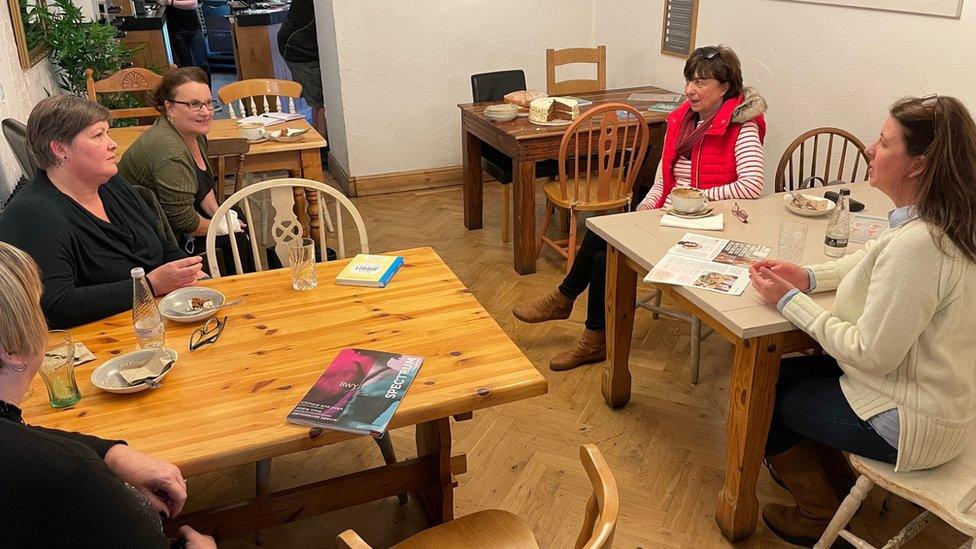
A cafe in Blackwood has been set up for women to discuss their experiences of menopause
'I thought I was going mad'
Mo Wildridge, 51, believed she became perimenopausal about eight years ago, but it was not until she visited the Menopause Cafe, in Blackwood, Caerphilly county, three years ago that she started to realise what was happening.
"I thought I was going mad," she said. "My brain had turned to mush. I would have to write things down, make notes and keep journals so I would remember everything."
She said she believed she was getting dementia, as her father was diagnosed when he was 51, and thought she was "going to die young".
BBC Wales' Ione Wells on the issues surrounding the menopause
Ms Wildridge faced disciplinary action over taking too much time off work due to sickness.
She said full-time work on top of studying for a psychology degree "tipped me over the edge".
And although her boss "was understanding", he told her he had to "follow the guidelines".
"That made me retreat into myself and I have not worked full-time since."
According to The Menopause Charity, about 10% of women quit work because of menopause, external and 60% suffer from brain fog.
Best practice guidelines and a greater understanding of menopause could have kept Ms Wildridge in work, she said.
"I do not want to find my daughters in the position I am in in 20 years time, so I will keep pushing for change."
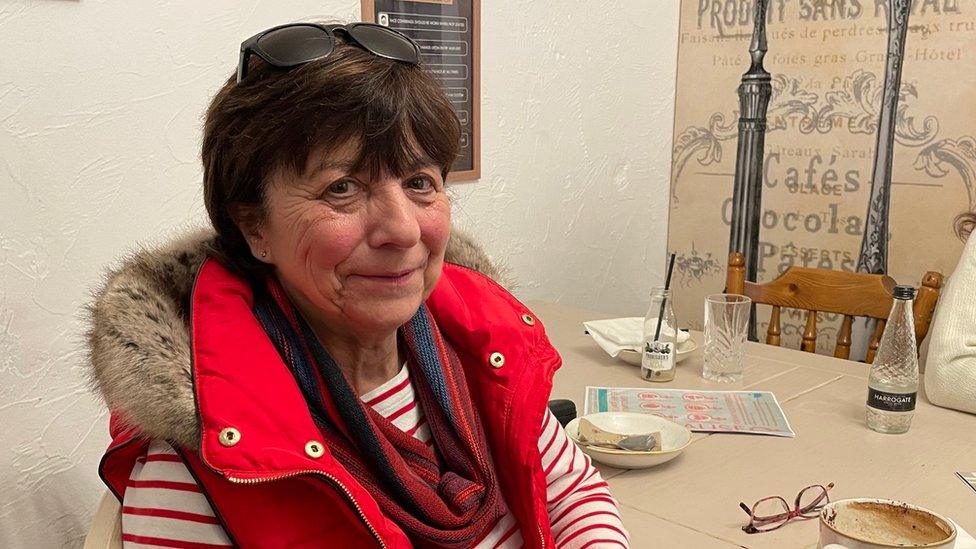
Jasmin Garland: "We have got celebrities on board and that will only increase if we get this through Parliament"
'Long way to go'
Jasmin Garland, 71, underwent a surgical menopause - a hysterectomy - at 50 and the following day went "wham-bam straight into menopause".
And after being "in a terrible state", she started HRT treatment.
Ms Garland feels that medical support for women needs to improve: "When women have a problem, they need to be taken seriously and not pooh-poohed with the old adage that these are 'women's problems' and just something that needs to be put up with.
"I only hope that GPs take things on board and support these women. There is some help but there is a long way to go."
The Menopause Charity suggests about 90% of women will experience physical and mental symptoms of menopause.
Dr Anne Connolly, clinical lead for women's health for the Royal College of GPs (RCGP), said all trainees "need to demonstrate competency of [menopause] in order to practice independently as a GP in the UK".
But the college acknowledged that individual medical schools were responsible for their own curriculum, "which would ideally include an understanding about the menopause."
The new law also proposes dedicated menopause hubs for women to attend if they have or suspect symptoms.
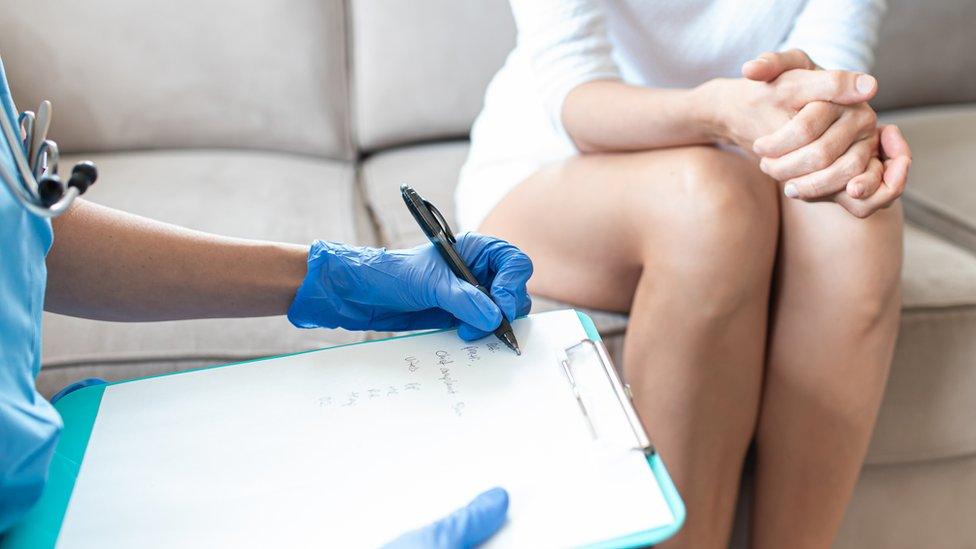
Women living in England will save about £200 after the health minister committed to combining two hormone treatments into one prescription
In England, the RCPG said it had contributed to England's women's health strategy, external on the roll out of hubs, while in Wales the membership body said, if the Welsh government wished to pursue them, "we would welcome the chance to engage in the implementation discussion".
The Welsh government said: "We are working with others to develop a menopause care pathway for use by all health boards in Wales.
"The women's health implementation group (WHIG) was established to improve outcomes for women with issues around pelvic health and we are keen to develop this group to also consider wider issues, including menopause."
- Published20 April 2021
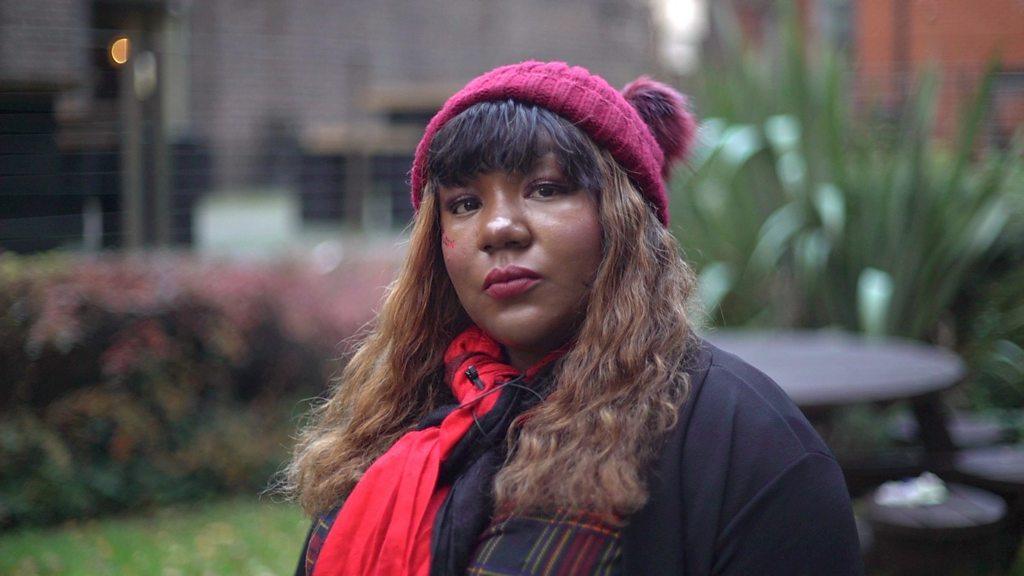
- Published29 October 2021

- Published14 July 2018

- Published15 July 2021

- Published27 June 2021
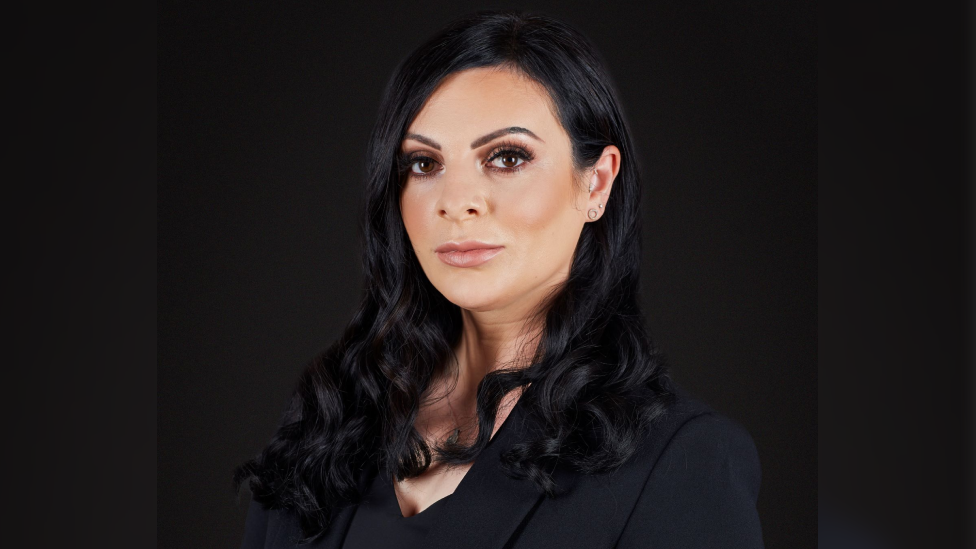
- Published18 October 2021
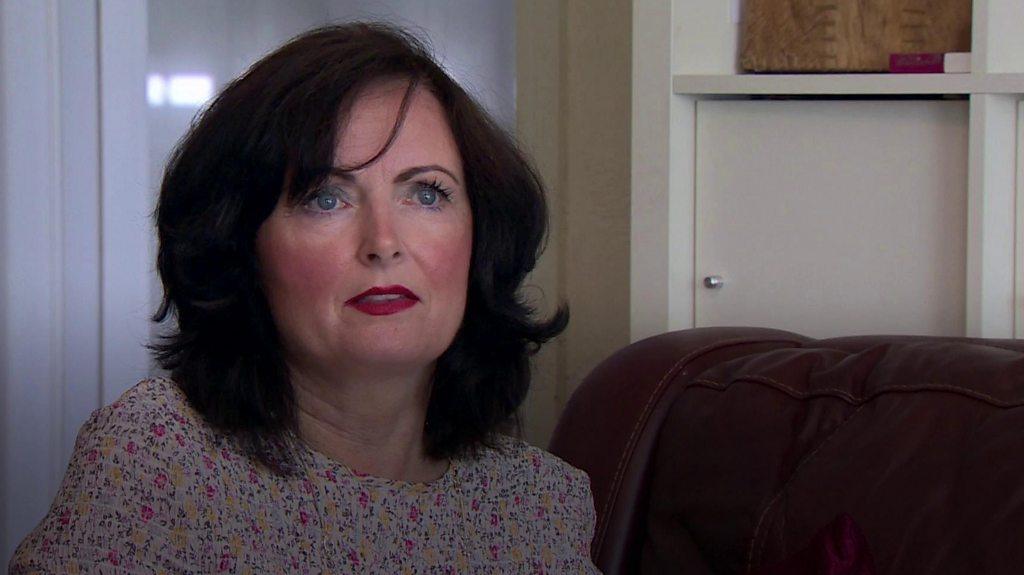
- Published6 March 2019
